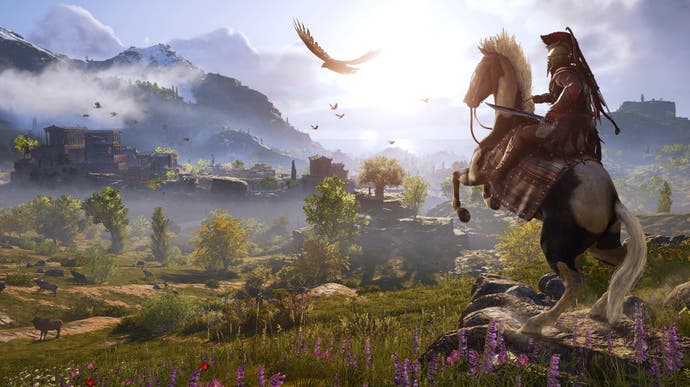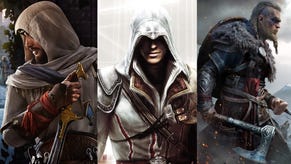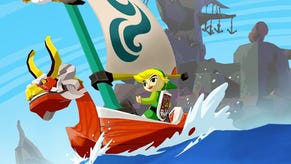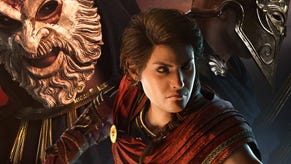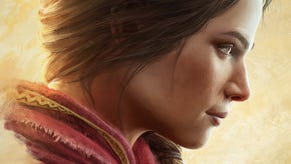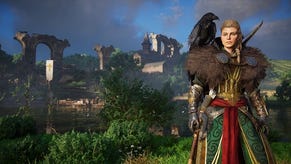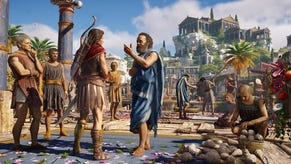Why Homer would approve of Assassin's Creed Odyssey
Bright-eyed and wide-ruling.
Is there a word more sickeningly overused to describe video games than 'epic'? I honestly struggle to think of a worse offender - although perhaps 'immersive' could compete for this title? 'Epic' has permeated our collective consciousness to such an extent that it's even the name of a developer. As someone who regularly watches shows at E3, PAX, CES, and the rest, I am genuinely sick to death of the word 'epic'. I hereby beg for its removal from all future speeches by any person planning to set foot on a stage to discuss a game for the rest of time. Seriously, stop saying epic.
Now that we've got that out of the way, I'm here to tell you that Assassin's Creed Odyssey is an epic game.
The word 'epic' comes from the Greek word 'epos', meaning 'word' or 'story'. As an adjective, it has come to mean something that is heroic or grand in scale, and as a noun it refers to a long poem, often derived from ancient oral tradition, reciting the adventures of legendary figures. Of course, when we think about it this way, one poem in particular jumps to mind: Homer's Odyssey. The word 'epic' has become so synonymous with Homer over the centuries that we even use the word 'Homeric' to describe something epic or grand in nature.
For anyone unfamiliar with the Odyssey, it is a poem believed to have been written around 700BC by the poet (or, more likely, multiple poets) referred to as Homer. It follows the hero Odysseus as he tries to get home to Ithaca from Troy, where he has spent the last ten years at war with the Trojans (for more on the war itself, see Homer's other famous poem the Iliad). Odysseus faces a number of trials on his journey, including battling monsters and being seduced by goddesses, but eventually takes back his home after a further ten years at sea - seven of which were admittedly spent on a luxurious island banging a goddess. For anyone wanting to read it (again or for the first time), Emily Wilson has recently produced a wonderfully accessible translation which, incidentally, is the first published translation to English by a woman.
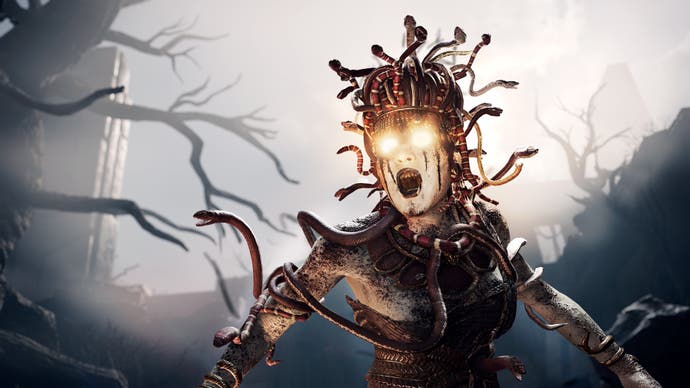
Homer's poem is written into the very fabric of Assassin's Creed Odyssey. Sometimes this is boldly sprawled across the face of the game. Other times it comes in quiet, subtle nods. It's not always clear how conscious these references are on the part of the developers and writers, but what is clear is how much the overall tone of the game draws from the poem. A vast sweeping tale of bold heroes, touched by the gods and accomplishing great feats. Assassin's Creed is the perfect game to do Homer justice.
In the most obvious tie in to Homer, we begin the adventure in Cephalonia where the game, and most modern scholars, locate Odysseus' home of Ithaca. We also very quickly meet (and bang - because of course we do) Odessa, a descendant of Odysseus determined to become a great hero like her ancestor. Odessa's desires foreshadow the journey that Kassandra (or Alexios) is about to embark on. It is significant that Kassandra's journey begins where Odysseus' journey ends, as if the torch is passing from one legend to another. We as players are immediately set up to compare our character's story to that of the great hero Odysseus - a comparison that works all too well.
The first major enemy we deal with in the game is the Cyclops, a bandit leader with a fake eye made of orichalcum. In one of the first missions, Kassandra steals the Cyclops' orichalcum eye and proceeds to gloat when she later meets him for a showdown (by inserting it into a goat's... ahem... próktos). This is reminiscent of how Odysseus' long journey begins. He is trapped in the cave of the cyclops Polyphemus, whose eye he blinds in order to escape. As Odysseus sails away from the island of Polyphemus, like Kassandra, he gloats that he was the one who blinded the cyclops. It is Kassandra's dealings with the Cyclops that attract the attention of Elpenor, instigating her quest to travel across Greece to reunite her family. Likewise, it was Odysseus' dealings with the cyclops that incurred the wrath of Poseidon (Polyphemus' father) and caused him to be swept away on a ten-year long journey to return home to his family.
The theme of homecoming is the lifeblood of both stories. Our protagonists are both seeking to reunite with their families after many years of separation by forces beyond their control - although, what constitutes as 'home' is different for each of them. For Kassandra, 'home' means bringing together her family rather than necessarily returning to her birthplace of Sparta. For Odysseus, on the other hand, returning home means physically taking back his palace from his wife's suitors who have occupied it during his long absence. In the case of Assassin's Creed, the player can decide to what extent Kassandra is driven by the desire to reunite her family or the desire to get revenge, but nevertheless her goal to overcome the forces that tore her family apart is the same.
Kassandra initially hears that the gods were the ones who took her away from her family, and the player is able to choose dialogue options that show a theological anger and scepticism throughout the game as a result. Similarly, Odysseus was kept away from his family by the interference of vengeful gods like Zeus and Poseidon (and also thirsty goddesses like Calypso). However, unlike Kassandra's experiences, there was no cultist plot masquerading as divine interference for Odysseus. It was just that old staple of Greek mythology: the gods being a huge bunch of dicks.
Relationships with the gods are not always so fractious for our protagonists. In spite of the divine challenges thrown up, both are described as god-like and as being favoured by the gods. Odysseus is a favourite of Athena, who regularly intervenes both indirectly and in person to help his journey home. Kassandra is said to be blessed by Zeus who has supposedly given her the eagle Icarus, and we later learn that she is indeed descended from the Isu, which in the Assassin's Creed series resemble the ancient Greek and Roman deities.
It's this mixing of the historical with the fantastical that makes Assassin's Creed the perfect game series to carry Homer's legacy. The Odyssey isn't some dull, impenetrable, Coleridge-esque poem, especially with the right translation. This is the original hero's journey. It's exciting and vibrant, with a complicated and flawed protagonist who often makes terrible decisions, decisions that result in the deaths of his entire crew, and yet Odysseus is still held up as a hero. The story of the Odyssey is made for video games and none more so than Assassin's Creed Odyssey, with an RPG style that allows players the freedom to make their own painful mistakes but still come out as heroes in the end.
Assassin's Creed Odyssey is a credit to its Homeric inspiration. From the rolling hills of ancient Greece to the treacherous seas to epic battles with terrifying mythical monsters, the sense of the true epic pervades the game. Upon completing it, you have an overwhelming sense that Kassandra's legend will be passed down for generations in poems and songs and stage.
